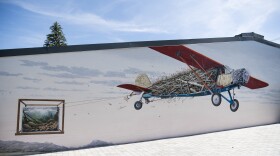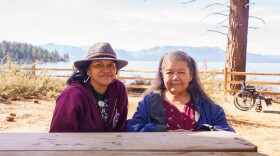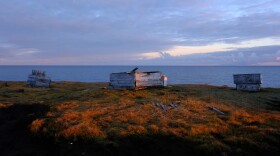-
As climate change makes snow fall inconsistent, Bogus Basin recreation area is banking on a new way to keep the slopes blanketed in snow and the chair lifts running.
-
When the conditions are right, land managers sometimes allow naturally ignited fires to burn. And new research shows that there can be significant ecological benefits when they do so.
-
In southern Oklahoma, the Chickasaw Nation is planting trees to combat climate change. The project is also ensuring that Chickasaw culture gets passed down to the next generation.
-
Thinking about buying your own small farm? Maybe raising some goats and artichokes? This dream can be hard to put into reality, but we'll tell you how!
-
Researchers from the University of Hawaiʻi at Mānoa are using Okinawan songs to learn about climate and geology. Our Living Lands Producer Daniel Spaulding spoke with Justin Higa, a postdoctoral fellow and a Ryukyuan traditional music practitioner, about the connections between climate, music, and culture.
-
A new mural in Sun Valley dives into the history of the Wood River Valley and into the history of parachuting beavers.
-
Across the country, Indigenous communities are facing increasing levels of food insecurity. In response, tribes are stepping up their food sovereignty efforts.
-
If you’re interested in hiking or how a changing climate is impacting our public lands or even finding ways to deal with grief, we’ve got a podcast for you.
-
The Washoe people believe the Tahoe Basin is the spiritual center of their world. They only have limited access to its shores but grassroots nonprofit aims to change that, healing both land and people.
-
As wildfires get more intense, there are questions about how effective prescribed fire and other fuel treatments can be. New research suggests that they can still have real impacts.
-
Alaska Desk reporter Alena Naiden spoke to Our Living Lands Producer Daniel Spaulding about her reporting from Savoonga on the effort to preserve traditional ice cellars, climate change’s impact on subsistence and more.
-
A consumer advocacy group is asking top insurance companies to adopt a list of nine protections aimed at increased transparency and fairness.
















